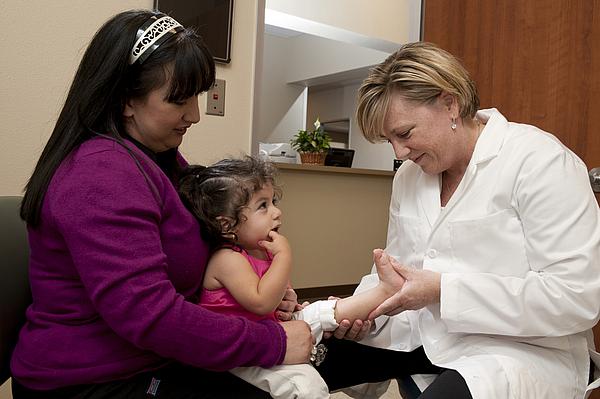No One Knows: Involving parents improves child and parent health

For the first post in this two-part series, click here.
While it’s rare today that parents are literally shut out of the hospital when their children are being treated, parents still find themselves struggling to get information.
This is for a variety of reasons – some of them deliberate and some of them the side effects of very busy or overwhelmed hospital systems. But if hospitals stopped to consider the evidence, they would find that by involving parents more, there's a benefit for the parents, the kids, and, by extension, the providers.
In 2004, Bernadette Melnyk, dean of The Ohio State University College of Nursing, and colleagues published a paper in the journal Pediatrics that showed one of the benefits of involving parents more in their children’s care.
They conducted the study at two hospitals: a 124-bed children’s hospital in New York state and a 235-bed children’s hospital in Pennsylvania. The requirements for enrollment in the study were that the children: 1. Had an unplanned medical or surgical admission to the pediatric intensive care unit; 2. Were 2- to 7-years-old; 3. Were expected to survive; 4. Had never been admitted to intensive care before; 5. Were cancer free; 6. Had no signs of physical abuse.
In the period of the study, that narrowed the field down to 212 mothers, and most decided to participate. Only 38 declined, “with the majority stating they were too stressed or too tired to participate or that they wanted to focus only on their children.” A few more moms were ultimately eliminated, bringing the final count for the study to 163 mothers.
About half were enrolled in a program called Creating Opportunities for Parent Empowerment (COPE). As the study described it:
The experimental program focused on increasing 1. Parents’ knowledge and understanding of the range of behaviors and emotions that young children typically display during and after hospitalization and 2. Direct parent participation in their children’s emotional and physical care.
The program started with mothers listening to audiotapes and reading through information about how to be involved in their child’s care. When children were transferred from intensive care to the general pediatric unit, the mothers went through another session of listening and reading, and this time were given additional tools “to enhance coping outcomes for their children.” They were given an activity workbook to complete with their child before being discharged. Then after they went home, the mothers were called to talk about how to make sure the child transitioned effectively back into the home environment.
The control group went through a program that had the same three-phase structure but did not provide specific information about involving parents in their children’s care.
So what did the study find?
COPE mothers reported significantly less parental stress and participated more in their children’s physical and emotional care on the pediatric unit, compared with control mothers, as rated by nurses who were blinded with respect to the study group.
During follow-up assessments, the mothers in the COPE program reported less depression and fewer PTSD symptoms than the mothers in the control group. Their kids did better, too. At six months after discharge, the children showed significantly fewer withdrawal symptoms. At 12 months, they showed fewer negative behaviors, less hyperactivity, and a greater ability to adapt.
Think about this one finding for a minute. You might think that the children would return from the hospital, show some positive effects for a little while and then, just like patients who leave a pharmaceutical trial, the effects would wear off. But one year after the study, the differences between the two groups of children remained profound. At the one-year mark, about 26% of the control group children showed clinically significant behavioral problems, while just 2% of the kids in the COPE group had those problems.
Doesn’t that seem like a good reason to get parents more involved in their children’s care? And it all starts with just sharing information.
Photo by StoneOakPediortho via Flickr.

